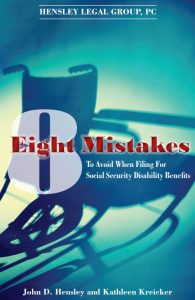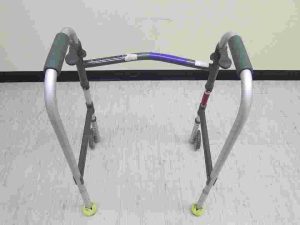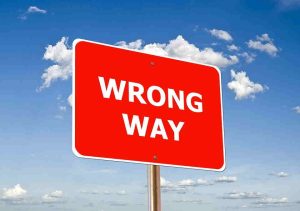Can I Work and Still Collect Social Security Disability Benefits?
“Can I work and still get Social Security disability?” It’s a good question and one that is often asked. Because it takes so long to resolve disability claims, many people consider returning to work in order to meet their financial obligations. But there are facts you need to know before making that decision, caution the […]

July 8, 2016
 “Can I work and still get Social Security disability?” It’s a good question and one that is often asked. Because it takes so long to resolve disability claims, many people consider returning to work in order to meet their financial obligations.
“Can I work and still get Social Security disability?” It’s a good question and one that is often asked. Because it takes so long to resolve disability claims, many people consider returning to work in order to meet their financial obligations.
But there are facts you need to know before making that decision, caution the authors of Eight Mistakes to Avoid When Filing for Social Security Disability Benefits, because working can definitely affect your eligibility for disability https://hensleylegal.com/practice-areas/social-security-disability/free-guide-learn-right-way-file-disability-benefits/benefits.
Social Security pays monthly disability benefits to you and to certain members of your family if:
- You have worked long enough to qualify and
- You have a medical condition that has prevented you from working and
- Your condition is expected to prevent you from working for at least 12 months or
- Your condition is expected to end in death.
The difficulty of qualifying for benefits and the issue of long delays are described on the Social Security website:
“Claims for disability benefits take more time to process than other types of Social Security claims – from three to five months.”
You can help shorten the process by collecting all necessary documents and evidence ahead of applying, the website urges. That documentation includes:
- Social Security number and proof of age
- Names and dosages of all medications you’re taking
- Names, addresses, and phone numbers of doctors, caseworkers, hospitals, and clinics that took care of you, along with the dates of your visits to each
- Medical records from every doctor, therapist, hospital, clinic, and caseworker
- Lab and test results
- Summary of where you worked before becoming disabled and the kind of work you did

- Your most recent W-2 tax form (if you were self-employed, a copy of your federal tax return)
Studies show that a 20-year-old worker has a three in ten chance of becoming disabled before reaching retirement age. In fact, millions of Americans receive monthly disability checks from the Social Security Administration. Typically, those checks are the only source of income those disabled people have.
There are two main types of Social Security disability benefits. You must be medically disabled to qualify for either program, but the financial qualifications of each program differ significantly:
- DIB (Disability Insurance Benefits) is a program for people who have been employed sufficiently long to qualify for benefits. The benefit amount depends on how much you earned while you were working.
- SSI (Supplemental Security Income) is a needs-based program and benefits depend on your need for help –having too much money in savings or too much household income could disqualify you. People who have never worked are able to qualify for SSI if they meet the medical and resource limit requirements.
Even after learning about those millions of people collecting benefits because of a disability, you should be aware of a very disturbing truth about Social Security disability benefits. You may as well know about that truth upfront:
Every single year, thousands of disabled Americans file for benefits and the majority of those claims are rejected. It’s not that people don’t need the help; many applicants deserve benefits, they simply do not know how the system works and how to work within that system.
 Many of the mistakes applicants make lead right back to that question we mentioned earlier: “Can I work and still get Social Security disability?”
Many of the mistakes applicants make lead right back to that question we mentioned earlier: “Can I work and still get Social Security disability?”
- Your mental or physical condition must meet specific criteria that qualify it as “severe.” In other
words, your condition must be serious enough to prevent you from working and must be serious enough to disrupt your daily functioning.
- You must not be engaging in “substantial gainful activity” or SGA. If you work and exceed the amount of money that Social Security sets as the benchmark amount, you’re engaging in SGA and you may find it difficult to gain eligibility for benefits. In 2016, SGA means you’re working and making more than $1,130 per month or $1,820 if you’re blind. Those are gross income amounts, meaning your income before taxes and other deductions.
As disability attorneys, we’ve come to the conclusion that there are eight primary mistakes people make when filing for disability benefits through Social Security:
- Failing to get – and to document – medical treatment (in many states it’s possible to be approved for Medicaid health insurance without needing disability approval from Social Security so that you can receive needed medical treatment)
- Failing to take prescribed medication
- Abusing alcohol or tobacco or using illegal drugs
- Waiting too long to apply for benefits
- Not appealing a denial or delaying past the 60-day appeal period
- Exaggerating your condition or making false or inconsistent statements
- Failing to keep documentation
- Not hiring an attorney (most Social Security disability attorneys work on contingency basis, getting paid only if you win your case)
Even if you are careful not to make any of these eight mistakes, it’s very possible that the first time around, the Social Security Administration will deny your application for benefits. It’s important to file an appeal and not give up. The first appeal is called a Request for Reconsideration, and, sad to tell, most people are denied a second time.
You then have the option of requesting a hearing with an Administrative Law Judge. It can take a long time – months and even years – for a hearing to be scheduled, due to the fact that there is a huge backlog of cases and not enough judges. However, statistics show that the majority of people who follow through with the appeal process ultimately are approved for benefits.
Is there nothing you and your disability attorney can do to speed up your Social Security disability claim? You may consider writing a letter to your Congressman and Senator, asking them to contact Social Security on your behalf.
It’s terribly frustrating, but even after the hearing has taken place, there may be another delay before a decision is issued.
 If you’re not working, how are you supposed to survive financially through the long, long process of qualifying for DIB or SSI benefits?
If you’re not working, how are you supposed to survive financially through the long, long process of qualifying for DIB or SSI benefits?
- Apply for rent and utility assistance through the township trustee’s office
- Utilize the services of food pantries and charitable organizations
Can you work and still get Social Security disability? Surely you would make more money working full time than you would get from Social Security disability benefits. Know, though, that working will definitely have an effect on your claim. Ironically, if you try to go back to work and soon after realize your medical condition will not allow you to continue, that unsuccessful work attempt can serve as evidence of your need for benefits.
Available 24/7
Free Case Review
You won’t pay any fees until we win your case.
It’s easy - you can: